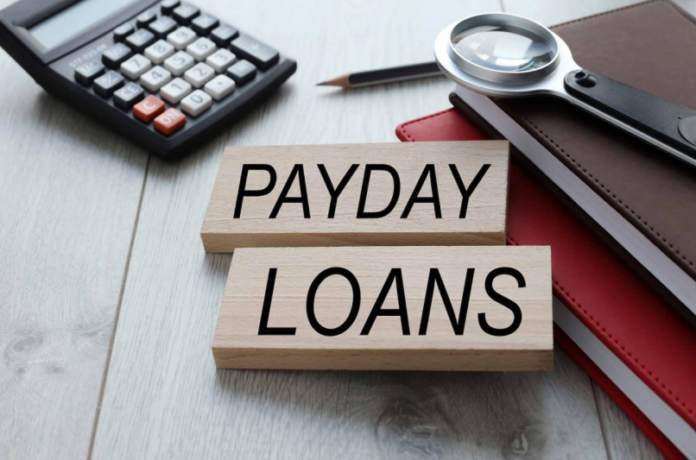Need fast cash but unsure whether to choose a quick or payday loan? Discover the key differences, pros, and cons to make the best financial decision.
In today’s fast-paced world, unexpected expenses can arise at any time. Whether it’s a sudden car repair, a medical emergency, or an overdue bill, sometimes you need cash—and fast. But when you search for solutions, you’ll likely come across two popular options: quick and payday loans. Both offer fast funding but come with distinct terms, interest rates, and repayment structures.
Choosing the wrong type of loan can lead to spiralling debt and financial stress. On the other hand, selecting the right option can provide temporary relief without long-term consequences. This guide will explain the key differences between quick and payday loans, helping you decide which is best for your financial situation.
What Are Quick Loans?
Quick loans are short-term, unsecured loans designed to provide fast access to funds, often within 24 hours. They are available through banks, credit unions, and online lenders. The loan amounts can vary, typically from £500 to £5,000, depending on your credit score and financial history.
Key Features of Quick Loans:
- Faster approval times: Funds are usually disbursed within a day.
- Flexible repayment terms: Repayment periods can range from a few months to a few years.
- Credit check required: Lenders will assess your credit score, though some offer options for those with less-than-perfect credit.
Pros of Quick Loans:
- Lower interest rates compared to payday loans.
- Higher loan amounts are available.
- More flexible repayment plans.
Cons of Quick Loans:
- Requires a decent credit score for favourable terms.
- It may involve more paperwork than payday loans.
What Are Payday Loans?
Payday loans are short-term, high-interest loans designed to be repaid by your next paycheck. They are typically smaller in amount—ranging from £100 to £1,000—and come with steep fees and interest rates. Payday lenders often do not require credit checks, making them accessible to borrowers with poor credit histories.
Key Features of Payday Loans:
- Very fast approval: Often within minutes.
- Short repayment window: Usually due within two weeks or by your next paycheck.
- Minimal credit requirements: Often, no credit check is needed.
Pros of Payday Loans:
- Rapid access to cash.
- Easy to qualify, even with bad credit.
- Minimal paperwork.
Cons of Payday Loans:
- Extremely high interest rates, often exceeding 400% APR.
- A short repayment period can trap borrowers in a cycle of debt.
- Many borrowers end up rolling over loans, leading to even higher fees.
When Should You Choose a Quick Loan?
Quick loans are ideal if you need more money and prefer lower interest rates with longer repayment terms. They’re best suited for planned expenses, such as:
- Medical bills: When you must cover a significant medical expense over time.
- Home repairs: For significant repairs or renovations that exceed a few hundred dollars.
- Debt consolidation: To combine multiple high-interest debts into one manageable payment.
Benefits of Choosing a Quick Loan:
- Financial stability: Longer terms mean smaller monthly payments.
- Lower risk of debt traps: Lower interest rates reduce the total cost of borrowing.
- Improves credit score: Timely payments can boost your credit.
When Should You Choose a Payday Loan?
Payday loans are a last-resort option designed for urgent, small-scale financial crises. They may be appropriate if:
- You have no other options: Bad credit or no credit history makes it hard to qualify for traditional loans.
- You need cash immediately: For emergencies like utility shutoffs, rent, or urgent car repairs.
- You’re sure you can repay it on time: If you can confidently repay the loan by your next paycheck.
Risks of Payday Loans:
- Debt cycle: 80% of payday loans are rolled over or followed by another loan, according to the Consumer Financial Protection Bureau (CFPB).
- Hidden fees: Late fees and rollover charges can quickly accumulate.
- Negative financial impact: Failure to repay can result in bank overdraft fees and collection actions.
Alternatives to Quick Loans and Payday Loans
If neither quick loans nor payday loans seem like the right fit, consider these safer alternatives:
- Credit Card Cash Advances
While interest rates are still high, they’re often lower than payday loans and don’t come with hidden fees. - Personal Loans from Credit Unions
Credit unions often offer small-dollar loans with lower interest rates and more flexible repayment options. - Borrowing from Friends or Family
It’s not always easy to ask, but it’s often a cheaper and safer option than high-interest loans. - Payment Plans with Service Providers
Many utility companies, medical providers, and landlords are willing to offer payment plans to those facing financial hardship.
How to Protect Yourself When Borrowing
Whether you choose a quick loan, payday loan, or another option, it’s important to borrow responsibly. Here are some tips to protect yourself:
- Read the fine print: Understand the interest rates, fees, and repayment terms before signing any agreement.
- Avoid rollovers: If you’re considering rolling over a payday loan, it’s a sign that it isn’t affordable.
- Check the lender’s reputation: Ensure the lender is licensed and reputable. Look for reviews and check with the Better Business Bureau (BBB).
- Consider your ability to repay: Only borrow what you can afford without compromising your financial stability.
Conclusion
When deciding between quick and payday loans, consider your financial situation, the amount you need, and your ability to repay. Quick loans offer lower interest rates and more flexible repayment terms, making them a better choice for those who qualify. On the other hand, payday loans provide fast cash with minimal requirements, but they come with significant risks due to high interest rates and short repayment periods.
In most cases, if you can qualify for a quick loan, it’s the most brilliant financial decision. However, suppose you’re facing an emergency and have no other options. In that case, a payday loan might be a temporary solution—just be sure to repay it on time to avoid falling into a cycle of debt.
Always explore alternatives first, and borrow responsibly to protect your financial future.

